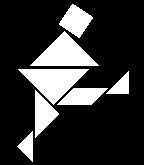 GPCE Home
GPCE Home
GPCE'06 Home
Final Program
Final Program?(pdf)
Organization
Dates
Venue
Registration Tutorials
GPCE1 | GPCE2
GPCE3 | GPCE4
GPCE5 | GPCE6
GPCE7
Workshops
AOPLE
DSAL
STS
GPCE4QoS Calls for
Demos
Papers
Tutorials
Workshops Electronic
Submission Tutorials and
Workshops
CALL FOR TUTORIAL PROPOSALS
Fifth International Conference on Generative Programming and Component Engineering (GPCE'06)

 October 22-26, 2006
October 22-26, 2006
Portland, Oregon
(co-located with OOPSLA'06) Sponsored by ACM SIGPLAN, in cooperation with ACM SIGSOFT.
GPCE'06 proceedings published by ACM Press.
Tutorial Chairs
- Christa Schwanninger, Siemens AG
- Hans-Arno Jacobson, University of Toronto
Important Dates
- Preliminary proposal submission deadline: Mar 18, 2006
- Preliminary date for notification of acceptance: May 01, 2006
Overview
Proposals for high-quality tutorials in all areas of generative programming and component-based development, from academic research to industrial applications, are solicited. Tutorial levels may be introductory, intermediate, or advanced. A tutorial's purpose is to give a deeper insight into an area than a conventional lecture. Tutorials extend over a half or a full day. This gives the speaker the possibility to select a proper length for their tutorial. The topic of a tutorial can come from a truly broad spectrum. Any interesting theme included but not restricted to the following topic list is welcome:- Generative programming
- Reuse, meta-programming, partial evaluation, multi-stage and multi-level languages, step-wise refinement
- Semantics, type systems, symbolic computation, linking and explicit substitution, in-lining and macros, templates, program transformation
- Runtime code generation, compilation, active libraries, synthesis from specifications, development methods, generation of non-code artifacts, formal methods, reflection
- Generative techniques for
- Product lines and architectures
- Embedded systems
- Model-driven architecture
- Component-based software engineering
- Reuse, distributed platforms, distributed systems, evolution, analysis and design patterns, development methods, formal methods
- Integration of generative and component-based approaches
- Domain engineering and domain analysis
- Domain-specific languages (DSLs) including visual and UML-based DSLs
- Separation of concerns
- Aspect-oriented programming and feature-oriented programming,
- Intentional programming and multi-dimensional separation of concerns
- Industrial applications